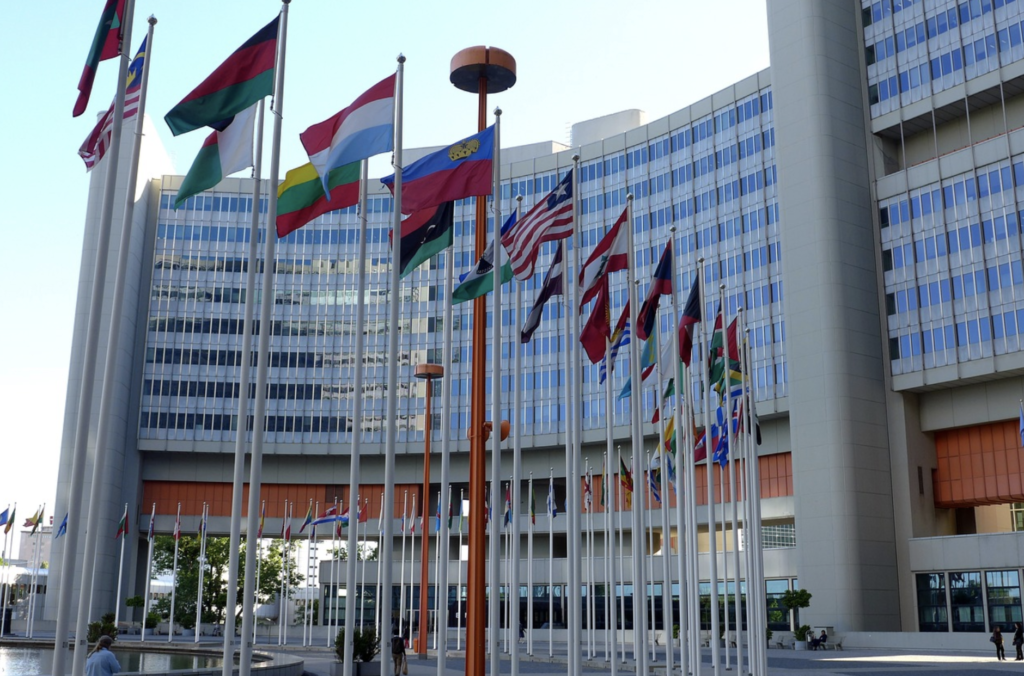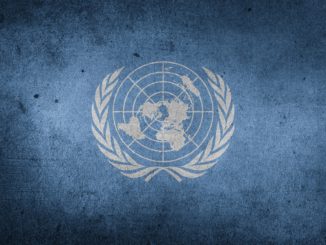
A successor to the failed League of Nations, the United Nations (UN) was created in the aftermath of World War II with the aim of forestalling a future ‘world war’. It first met on the 17th of January, 1946 to discharge its duties as laid out by the UN Charter, for ‘the maintenance of international affairs and security’. The United Nations Security Council (UNSC/SC) was endowed with special powers as a committee, and as the only committee empowered to pass binding resolutions: a complex structure of work. With fifteen seats in total, the UNSC is a subject of controversy for three main reasons: membership, regional representation, and the power of the ‘veto’.
In terms of membership, we may firstly reference the numerical seat count of the UNSC. With only five permanent members and ten rotating members, out of a total of 193 countries, it is a direct representation of only a fraction of the UN. Informally known as the Power Five [P5], the five permanent members are the United States of America, the United Kingdom, France, Russia, and China – the five victorious powers of the second world war. The ten non-permanent seats rotate every two years between members of the UN. When a vacancy for a seat is impending, an election is held to determine the future holder(s). There are a number of issues surrounding membership which includes but is not limited to: a call for expansion, (whereby either the number of non-permanent seats are increased, permanent seats are increased, or both) and calls for shorter terms for non-permanent members.
Another issue arising from the division of UNSC seats is regional representation. The United Nations [UN] splits member countries into five regional segments, each of which has a specific number of non-permanent seats allocated: the African Group (3), Asia-Pacific Group (3), the Eastern European Group (2), the Group of Latin American and Caribbean States (2), and the Western European and Others Group (5). This issue is linked to the former, where the allocation of seats and the role of regional organizations such as the European Union (EU) and the African Union (AU), is also disputed.
As we move onto the power of the ‘veto’, it is crucial that we first acknowledge exactly what the power is defined as. The option of veto was granted only to the five permanent members of the UNSC, the P5, whereby they have the power to block the passage of any resolution brought before the Security Council through their respective negative votes, regardless of the popular vote tally. This has led to 243 resolutions having been blocked as of 29th April 2018. The
exercise and usage of the veto, its supposedly arbitrary nature and the lack of a ‘veto-override’ are all areas of contention.
Firstly, in consideration of the supporting view, it is of notice that a need for reform is universally recognized when it comes to increasing council membership and making it more representative of the global community. This was pointed out by an Italian Representative to the UN, speaking on behalf of one of the factions that support various different reform proposals, the United for Consensus group at a UN meeting. This recognition stems from the belief that in the modern-day world there is a lack of representation in the UNSC – for example, although Africa is a continent with 54 countries, there is not a single permanent member representative from it. The same goes for India, which makes up a total of 17% of the world’s population. These examples shine a light on the lack of representation, which in turn arguably leads to a less representatively democratic council, which is worrying as it acts as the highest symbolic authority on any number of crucial issues the world is facing at any given moment.
The former Secretary-General of the UN, Kofi Annan, explained the need for expansion by saying that if measures for reform are not taken, the council will come under ‘stress and pressure’, and will be a victim to ‘destructive competition’ because of which some (countries) will ‘ignore council decisions’. Annan also added that the UNSC of today reflects ‘the realities of 1945’, that ‘the world has changed and the UN has to change’. Annan, with his experience in balancing contrasting ideologies as UN Secretary General, was seen as authority on the issue, and his views on this can furthermore be taken as generally representative of the perspectives of the international community at large on this issue. This is supported by representatives from countries such as Russia, a P5 member, whose Prime Minister affirmed Annan’s views at his General Assembly speech in 2009, to South Africa’s International Affairs Minister also concurred in a speech to the South African Parliament in Cape Town in 2011.
However, where the universality of agreement ends is with the discussion on veto power, as acknowledged by the representative of Lichtenstein, and others at the UN, for whom it was the ‘crux of the deadlock’. Whilst all 193 countries in the United Nations agree that seats should be added and the Council should proceed with reformation to become more representative, there is still great disagreement over veto power reform.
To introduce the argument for reform, one former researcher for the UN University, and now an independent researcher on UNSC affairs, Peter Nadin, branded the veto as an ‘anachronism’, as well as ‘an impediment to credible international action to crises’.
A number of countries maintain that due to the nature of the UN, and its emphasis on the equality of nations, the veto – a uniquely special privilege – should be abolished entirely. Other perspectives arguing for veto power reform, support either a voluntary code of conduct or a mandatory restraint on the use of veto pertaining to matters on genocide, war crimes, crimes against humanity, ethnic cleansing, and massive human rights violations. It is further worth noting that these countries are not limited to a certain region, or sphere of hegemonic influence, instead representing a fair portion of the world and containing many conflicting views.
On the other hand, there are a great number of arguments which support the idea that neither the power of veto nor the Security Council should be reformed. Jonathan Cristol, a World Policy Institute scholar who reports from the United Nations on UN Reform makes a compelling argument when it comes to membership incrementation. He states that due to the large number of proposals for UN Reform and the nature of global politics, the effort required to increase seats would only be worth it if the goal of the UNSC was ‘diversity, not functionality’. He proceeds to note that while every state is open to the idea of ‘expansion’, they are only so due to the comforting knowledge that not only will all of their candidates be turned down by their rivals, but vice versa as well.
This is backed up by former UNSC President, and Singapore’s former Permanent Representative to the UN, Kishore Mahbubani, who stated in a speech that this was the reason there had not been major Security Council reform for so many decades – the fact that there is always opposition to candidacies. He then goes on to give several examples, where ‘for every India, there is a Pakistan saying, why not me?’, and for every Brazil there is an Argentina saying the same, and so forth. It can, therefore, be reasonably argued that expanding seats on the Security Council could potentially increase hostility and reduce goodwill amongst nations, and while the global community is united in the quest for expansion, expansion itself could lead to an intense diplomatic standoff between regional rivals. To highlight this claim, there is evidence of the conflict between the G4 Nations (four countries which support bids for permanent seats on the United Nations Security Council) and United for Consensus [UfC] (informally known as the ‘Coffee Club’). The G4 often clashes with the UfC movement, which started off with the sole purpose of opposing G4 candidacies.
Furthermore, opponents of veto power reform are able to present a credible argument in favor of the status quo. Vladimir Putin, President of Russia – a P5 member with the power of veto – touted the veto as an instrument that is able to maintain international stability in a 2013 op-ed in the New York Times. His opinion is popular, backed by the belief that the veto checks hegemonic spheres of influence, and helps to prevent conflicting interests from turning into
conflicts. For example, if the Security Council chose to pass a resolution on Syria that was not agreeable to the interests of Russia or China, then that could give them the incentive to circumvent council decisions to preserve their geo-political strategies as well as the economic and political stability of their own countries and their allies. Whilst this would weaken the overall power of the UNSC, it can technically be perceived as a system of checks and balances.
Another supportive argument in defense of preventing reform is that of Chinese Foreign Minister Wang Yi, who stated that ‘China’s veto at the Security Council has always played an important role in checking the instinct of war and resisting power politics. His statement heavily implied that he thought the veto played a role in ensuring relative stability in areas where the interests of the P5 – or others – might overlap, lending credence to the former argument.
Finally, Vitaly Churkin – Permanent Representative to the UN from Russia – stated, “In the world that we live in, the US and its allies almost always have nine votes in favor of one resolution or another. Therefore, without the veto right, they could just put a resolution on the table and go on rubber-stamping these resolutions.” This belied his belief that the veto plays an instrumental role in checking hegemony on a widespread scale, at least in matters of international law and as far as the influence of the Security Council goes, further adding authority to the previous argument.
In conclusion, Security Council reform should be opposed. This is based on three points made throughout. Firstly, the expansion of the Council could potentially lead to a degree of anarchy or conflict. Secondly, increasing regional representation with the sole aim of increasing diversity might compromise efficiency, and take up time needed to actually maintain unity through the creation of resolutions. Lastly, there is a great possibility that veto power reform would lead to hostility, the weakening of the UNSC as an institution, and possible western hegemony.
Although the initial overview of these arguments against the question of the necessity of UNSC reform began by laying grounds for supporting the need for reform, further analysis and research leads to a more nuanced conclusion and highlights just how dividing the issue is. After learning about the ever-increasing list of propositions and plans for reform and gaining a better understanding of how none were even remotely able to gather consensus, there was a clear agreement that a perfect solution has not been found yet. Cristol describes the UNSC as having a suboptimal structure in a perfect world, but an optimal world in ours; this statement holds true especially in relation to the polarized geopolitics of the world which would then have to cope with the possible ramifications of reform. If the veto-power was reformed, it could lead to direct intervention in countries like Syria, which whilst called for from some sides, would further contribute to a worsening of US-Russia ties, further presenting a worrying prospect. If the Council was expanded, there could be a bitter fallout, something our already polarized world cannot afford. Finally, it is worth noting how the need for something does not necessarily correlate with the necessity of its implementation, an inverse correlation that explains much of why the world works as it does.
![]()




Wonderfully written, Malik.
Well balanced analysis.